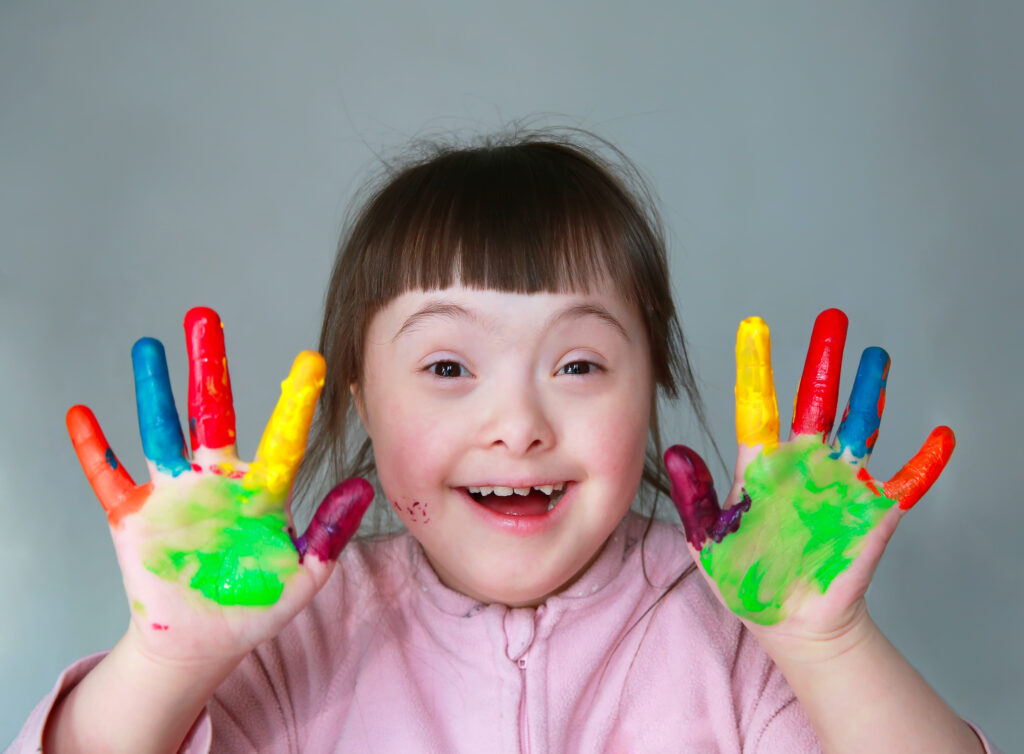Genetic syndrome symptoms are many and varied. Each of the 7,000 genetic syndromes currently identified presents with it’s own unique set of symptoms, including characteristic facial features and medical conditions.
However, even within a genetic syndrome, symptoms may vary from mild to more severe. It is also often common, with some rare diseases, for siblings within the same family with the same syndrome, to have symptoms of varying levels of severity.
Some symptoms present in some individuals with the same shared syndrome, others don’t. This makes the entire topic of rare disease symptoms a complicated one.
At the same time many symptoms of a rare disease, especially associated facial features, are on their own not indicative of anything. Only when specific features are present in one individual is there sometimes cause for concern in terms of a rare disease.
A single or isolated facial feature is not considered to be a symptom due to its singularity. To be considered rare disease symptoms there must be more than two related facial features identified in an individual.
Facial features
Some of the most commonly known features of a rare disease are its characteristic facial features. These vary from syndrome to syndrome, and often from person to person too.
Down syndrome, as one of the most well-known and most prevalent genetic syndromes, has distinct facial features including a flattened face, especially across the bridge of the nose, almond-shaped eyes, a short neck, small ears, and poor muscle tone.
There are thousands of identified facial features recognized as symptoms of a rare disease. These symptoms may affect the shape, size, and structure of the relevant part of the face. Sometimes a symptom may affect how a part of the face works – a unique eye feature may simply affect the size and shape of the eye, or it may also affect an individual’s vision.
In recent years there have been moves to apply advanced AI-powered facial analysis screening to the field of genetic diagnosis. Facial analysis screening for genetics scans an image of an individual to identify markers of rare diseases. These markers are then compared against a database of known rare disease facial features. This then creates a detailed genetic analysis report, which enables a genetic counselor to understand an individual’s potential risk for specific genetic syndromes.
Rare disease symptoms: others
Symptoms of a rare disease may affect any body system and part of the body. Often symptoms affect multiple parts of the body and cause serious medical conditions in their own right. Some rare disease symptoms, for example, might include congenital heart defects, and other organ health conditions, such as those affecting the liver, and kidneys.
Other symptoms may affect the mental and intellectual development of an individual. Global developmental delay, a delay in all areas of an individual’s development, is common with some genetic syndromes.
Other features might affect an individual’s intellectual development and ability, as well as their ability to speak or walk.
Rare disease symptoms: diagnosis
Sometimes the presence of a unique set of symptoms can help a doctor or genetic counselor diagnose a syndrome in an individual. Or they can help a genetic counselor understand which specific genetic test to recommend for a patient.
The more we understand the unique symptoms of a rare disease, the better able we are to enhance the accuracy of genetic testing and diagnosis. This in turn means faster access to rare disease patients to targeted support, care, and possible treatment.



